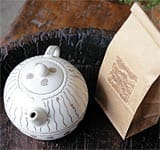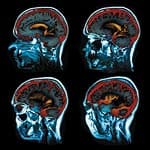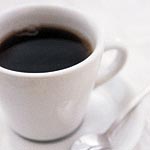Life Extension Magazine®
Cultivated and used as a medicinal plant for thousands of years, tea is undoubtedly one of China’s most important contributions to global civilization. Indeed, enjoying a carefully brewed cup of tea epitomizes civilized life in much of the world. Whether green tea brewed from fresh-picked leaves, or black and oolong teas made from the dried, fermented leaves of the perennial shrub Camellia sinensis, tea is second only to water as the world’s most popular beverage.1 Although tea has been revered for its healthful properties since ancient times, only in recent decades have scientists seriously endeavored to unravel tea’s chemical secrets. This research has confirmed what folk healers have long claimed: tea both calms and invigorates, while protecting against various ailments and even contributing to a longer, healthier life. Tea contains a unique blend of chemicals with a variety of health-enhancing properties. Catechin polyphenols, for instance, are potent antioxidant and anti-inflammatory compounds.2 The best known of these is epigallocatechin-3 gallate (EGCG), a chemical credited with benefits ranging from fighting cancer to promoting fat and weight loss.2-6 Ingested or topically applied green tea polyphenols are even credited with protecting the skin from ultraviolet radiation-induced skin damage.2 In addition to EGCG, green tea contains other compounds with equally beneficial bioactive properties. One lesser known but no less important of these compounds is an amino acid called theanine. Calming PropertiesTheanine is found almost exclusively in the leaves of Camellia sinensis, a relative rarity in the plant kingdom, where chemical redundancy is the norm.1 Theanine accounts for up to 50% of the dry protein weight of green tea.7 Of course, tea also contains caffeine, a familiar stimulant. Theanine is credited with counterbalancing caffeine’s stimulating effect by inducing relaxation. The precise mechanism by which theanine produces this anxiety-reducing effect remains uncertain, though theanine is known to alter levels of two important mood-regulating neurotransmitters, dopamine and serotonin.8,9 Researchers in Australia recently compared theanine to alprazolam (Xanax®), a standard medication used to treat anxiety. They found that theanine tended to reduce anxiety during a relaxation phase of the study, while the drug had no such effect. Neither substance significantly reduced feelings of anxiousness during a phase of the experiment in which anxiety was induced experimentally.10 In an earlier study, scientists used brain-wave monitoring (electroencephalograph, or EEG) to determine the lowest dose at which caffeine stimulated laboratory rats. They then administered theanine directly into the rats’ bloodstreams at a similar dose and noted that theanine counteracted caffeine’s stimulatory effect on the brain. Interestingly, when theanine was given by itself at smaller doses—at less than half the “calming” dose—it had a stimulatory effect. The researchers concluded that theanine may have two different effects, stimulating or relaxing, depending on the dose.11
Relaxing EffectsTheanine has also been shown to reduce high blood pressure, further evidence that it induces relaxation.9,12 Japanese researchers, for instance, have demonstrated that theanine reduces blood pressure in a dose-dependent manner in rats serving as a model for human hypertension (elevated blood pressure). The larger the dose of theanine given the rats, the more dramatic was the reduction in their blood pressure. Intriguingly, when control rats with normal blood pressure were given the highest dose of theanine, they experienced no change in blood pressure. It appears that theanine has no effect of lowering blood pressure in normal individuals, but instead affects blood pressure only when a problem already exists.9,12 Cardiovascular SupportTheanine has also been shown to prevent lipid peroxidation of LDL (low-density lipoprotein), a protective effect that also undoubtedly contributes to tea’s reputation for promoting cardiovascular health. Peroxidation of lipids is thought to play a role in the development of degenerative conditions such as atherosclerosis.13 Indeed, theanine appears to exert a variety of complementary, beneficial effects. Japanese researchers experimented on rats with elevated lipid and triglyceride levels caused by liver tumors. After adding powdered green tea and theanine to the rats’ diet, the scientists concluded that theanine was at least partially responsible for suppressing tumors and lowering cholesterol and triglyceride levels. While the blood lipid changes may have resulted solely from the decrease in tumor mass, the scientists speculated that both tea and theanine exert anti-cancer as well as lipid-lowering effects.14 That explanation appears to be supported by the findings of another study, which determined that theanine plus green tea catechins, such as EGCG, reduced triglyceride levels in the serum and livers of laboratory mice. The mice also experienced a significant reduction in serum fatty acids while ingesting theanine and tea catechins, and lost significant body fat as well.6
Demonstrated NeuroprotectionTheanine has been demonstrated to cross the blood-brain barrier.8 In an epidemiological study of nearly 6,000 women living in Japan, those who consumed five or more cups of green tea a day were significantly less likely than non-tea drinkers to suffer stroke. In a follow-up to the study, researchers determined that women who routinely drank little or no green tea were more than twice as likely as heavy tea drinkers to suffer stroke or cerebral hemorrhage.15 Subsequent experiments have confirmed that theanine protects the brain from damage during ischemia, a condition in which the brain temporarily receives too little oxygen due to reduced blood flow, which may result from stroke.16 A recent Japanese study showed that theanine significantly protects the brain after an ischemic incident occurs. Using a rodent model of cerebral artery blockage, researchers injected theanine immediately before or immediately before and three hours after blood flow to an area of the rodents’ brains was interrupted. Theanine significantly decreased the amount of tissue damaged by the temporary lack of blood. The scientists concluded that theanine provided direct nerve cell protection and suggested that theanine “may be clinically useful for preventing cerebral infarction.”17 Efforts to explain this neuroprotective effect have focused on theanine’s close chemical similarity to an important neurotransmitter, glutamic acid (glutamate). Glutamate plays an important role in memory and learning. It is released by nerve cells into the extracellular space, where it normally elicits a desired response and is subsequently taken up by neurons for recycling. Interruptions in blood supply, as in stroke, interfere with this ability to recycle glutamate. Excess glutamate is released and builds up in the extracellular spaces, where it sets off a chemical chain reaction that results in neuronal death. Theanine is believed to compete with glutamate to bind with glutamate receptors, thus reducing glutamate toxicity.18-20 Enhancing ChemotherapyThe multifunctional molecule theanine has been shown to have anti-cancer effects, by making cancer-killing drugs more efficient while reducing toxicity to normal cells.21-25 When co-administered with three common chemotherapeutic agents—doxorubicin, idarubicin, and pirarubicin—theanine prevents cancerous cells from ejecting the drugs after the drugs have entered the tumor cells. The result is increased chemotherapy effectiveness and decreased toxicity to healthy tissues.21-25 Priming ImmunityProponents of tea consumption have long believed that tea enhances immunity. In a report published in 2003 in the Proceedings of the National Academy of Sciences, Harvard researchers provided scientific evidence to support this claim. According to the scientists, tea acts to prime the immune system to recognize bacterial, fungal, and parasitic invaders. It accomplishes this amazing feat, they revealed, by acting as a sort of natural vaccine that “teaches” immune system cells to recognize certain markers that are commonly present on the surfaces of tumor cells and invading pathogenic organisms.7
Tea contains antigens—structures known as nonpeptide alkylamines—that are capable of eliciting an immune system response. These alkylamines prime immune system T cells to produce memory and non-memory cytokines.26 Cytokines are a broad category of immune system proteins that coordinate interactions between T cells and antibodies, while amplifying immune reactivity. Theanine is a precursor to ethylamine, an alkylamine found in brewed tea. In human experiments, subjects consumed either tea (containing caffeine and a known amount of theanine) or coffee, which also contains caffeine but not theanine. Blood tests showed that tea drinkers, but not coffee drinkers, saw increased production of an important disease-fighting cytokine by their T cells.7 When pathogens invade, their surfaces often bristle with alkylamines similar to those found in tea.26 T cells that have been primed by prior exposure to theanine are better equipped to promptly recognize and neutralize the microbial threat.7 The Harvard researchers concluded, “These data provide evidence that dietary intake of tea . . . containing alkylamine antigens or their precursors [for example, theanine] may prime human [gamma] [delta] T cells that then can provide natural resistance to microbial infections and perhaps tumors.”7 ConclusionTheanine is clearly one of nature’s remarkably beneficial compounds. While it is possible to ingest enough green tea daily to consume therapeutic doses of theanine, it may be more convenient to reap the benefits of this natural health enhancer by taking supplemental theanine in capsule form. Many health care practitioners suggest 200 mg taken twice daily for optimal health benefits. | ||||
| References | ||||
| 1. Graham HN. Green tea composition, consumption, and polyphenol chemistry. Prev Med. 1992 May;21(3):334-50. 2. Katiyar SK. Skin photoprotection by green tea: antioxidant and immunomodulatory effects. Curr Drug Targets Immune Endocr Metabol Disord. 2003 Sep;3(3):234-42. 3. Lambert JD, Yang CS. Mechanisms of cancer prevention by tea constituents. J. Nutr. 2003 Oct;133:3262S-7S. 4. Chantre P, Lairon D. Recent findings of green tea extract AR25 (Exolise) and its activity for the treatment of obesity. Phytomedicine. 2002 Jan;9(1):3-8. 5. Liao S. The medicinal action of androgens and green tea epigallocatechin gallate. Hong Kong Med J. 2001 Dec;7(4):369-74. 6. Zheng G, Sayama K, Okubo T, Juneja LR, Oguni I. Anti-obesity effects of three major components of green tea, catechins, caffeine and theanine, in mice. In Vivo. 2004 Jan-Feb;18(1):55-62. 7. Kamath AB, Wang L, Das H, Li L, Reinhold VN, Bukowski JF. Antigens in tea-beverage prime human Vgamma 2Vdelta 2 T cells in vitro and in vivo for memory and nonmemory antibacterial cytokine responses. Proc Natl Acad Sci U S A. 2003 May 13;100(10):6009-14. 8. Yokogoshi H, Kobayashi M, Mochizuki M, Terashima T. Effect of theanine, r-glutamylethylamide, on brain monoamines and striatal dopamine release in conscious rats. Neurochem Res. 1998 May;23(5):667-73. 9. Yokogoshi H, Kobayashi M. Hypotensive effect of gamma-glutamylmethylamide in spontaneously hypertensive rats. Life Sci. 1998;62(12):1065-8. 10. Lu K, Gray MA, Oliver C, et al. The acute effects of L-theanine in comparison with alprazolam on anticipatory anxiety in humans. Hum Psychopharmacol. 2004 Oct;19(7):457-65. 11. Kakuda T, Nozawa A, Unno T, Okamura N, Okai O. Inhibiting effects of theanine on caffeine stimulation evaluated by EEG in the rat. Biosci Biotechnol Biochem. 2000 Feb;64(2):287-93. 12. Yokogoshi H, Kato Y, Sagesaka YM, Takihara-Matsuura T, Kakuda T, Takeuchi N. Reduction effect of theanine on blood pressure and brain 5-hydroxyindoles in spontaneously hypertensive rats. Biosci Biotechnol Biochem. 1995 Apr;59(4):615-8. 13. Yokozawa T, Dong E. Influence of green tea and its three major components upon low-density lipoprotein oxidation. Exp Toxicol Pathol. 1997 Dec;49(5):329-35. 14. Zhang G, Miura Y, Yagasaki K. Effects of dietary powdered green tea and theanine on tumor growth and endogenous hyperlipidemia in hepatoma-bearing rats. Biosci Biotechnol Biochem. 2002 Apr;66(4):711-6. 15. Sato Y, Nakatsuka H, Watanabe T, et al. Possible contribution of green tea drinking habits to the prevention of stroke. Tohoku J Exp Med. 1989 Apr;157(4):337-43. 16. Kakuda T, Yanase H, Utsunomiya K, Nozawa A, Unno T, Kataoka K. Protective effect of gamma-glutamylethylamide (theanine) on ischemic delayed neuronal death in gerbils. Neurosci Lett. 2000 Aug 11;289(3):189-92. 17. Egashira N, Hayakawa K, Mishima K, Kimura H, Iwasaki K, Fujiwara M. Neuroprotective effect of gamma-glutamylethylamide (theanine) on cerebral infarction in mice. Neurosci Lett. 2004 Jun 3;363(1):58-61. 18. Nagasawa K, Aoki H, Yasuda E, Nagai K, Shimohama S, Fujimoto S. Possible involvement of group I mGluRs in neuroprotective effect of theanine. Biochem Biophys Res Commun. 2004 Jul 16;320(1):116-22. 19. Kakuda T, Nozawa A, Sugimoto A, Niino H. Inhibition by theanine of binding of [3H]AMPA, [3H]kainate, and [3H]MDL 105,519 to glutamate receptors. Biosci Biotechnol Biochem. 2002 Dec;66(12):2683-6. 20. Kakuda T. Neuroprotective effects of the green tea components theanine and catechins. Biol Pharm Bull. 2002 Dec;25(12):1513-8. 21. Sugiyama T, Sadzuka Y. Theanine, a specific glutamate derivative in green tea, reduces the adverse reactions of doxorubicin by changing the glutathione level. Cancer Lett. 2004 Aug 30;212(2):177-84. 22. Sugiyama T, Sadzuka Y. Theanine and glutamate transporter inhibitors enhance the antitumor efficacy of chemotherapeutic agents. Biochim Biophys Acta. 2003 Dec 5;1653(2):47-59. 23. Sadzuka Y, Sugiyama T, Sonobe T. Improvement of idarubicin induced antitumor activity and bone marrow suppression by theanine, a component of tea. Cancer Lett. 2000 Oct 1;158(2):119-24. 24. Sugiyama T, Sadzuka Y, Nagasawa K, Ohnishi N, Yokoyama T, Sonobe T. Membrane transport and antitumor activity of pirarubicin, and comparison with those of doxorubicin. Jpn J Cancer Res. 1999 Jul;90(7):775-80. 25. Sadzuka Y, Sugiyama T, Suzuki T, Sonobe T. Enhancement of the activity of doxorubicin by inhibition of glutamate transporter. Toxicol Lett. 2001 Sep 15;123(2-3):159-67. 26. Bukowski JF, Morita CT, Brenner MB. Human gamma delta T cells recognize alkylamines derived from microbes, edible plants and tea: implications for innate immunity. Immunity. 1999 Jul;11(1):57-65. |




